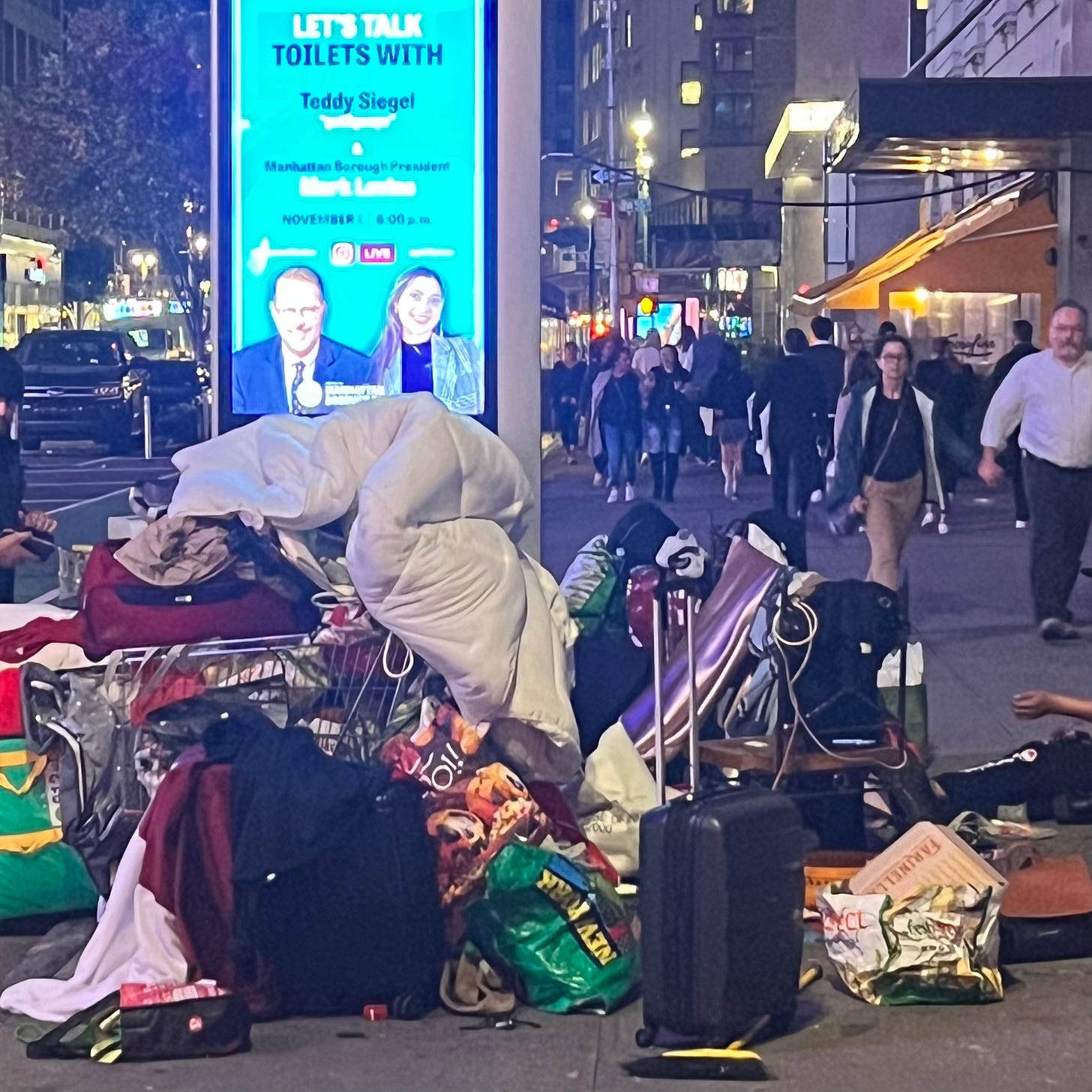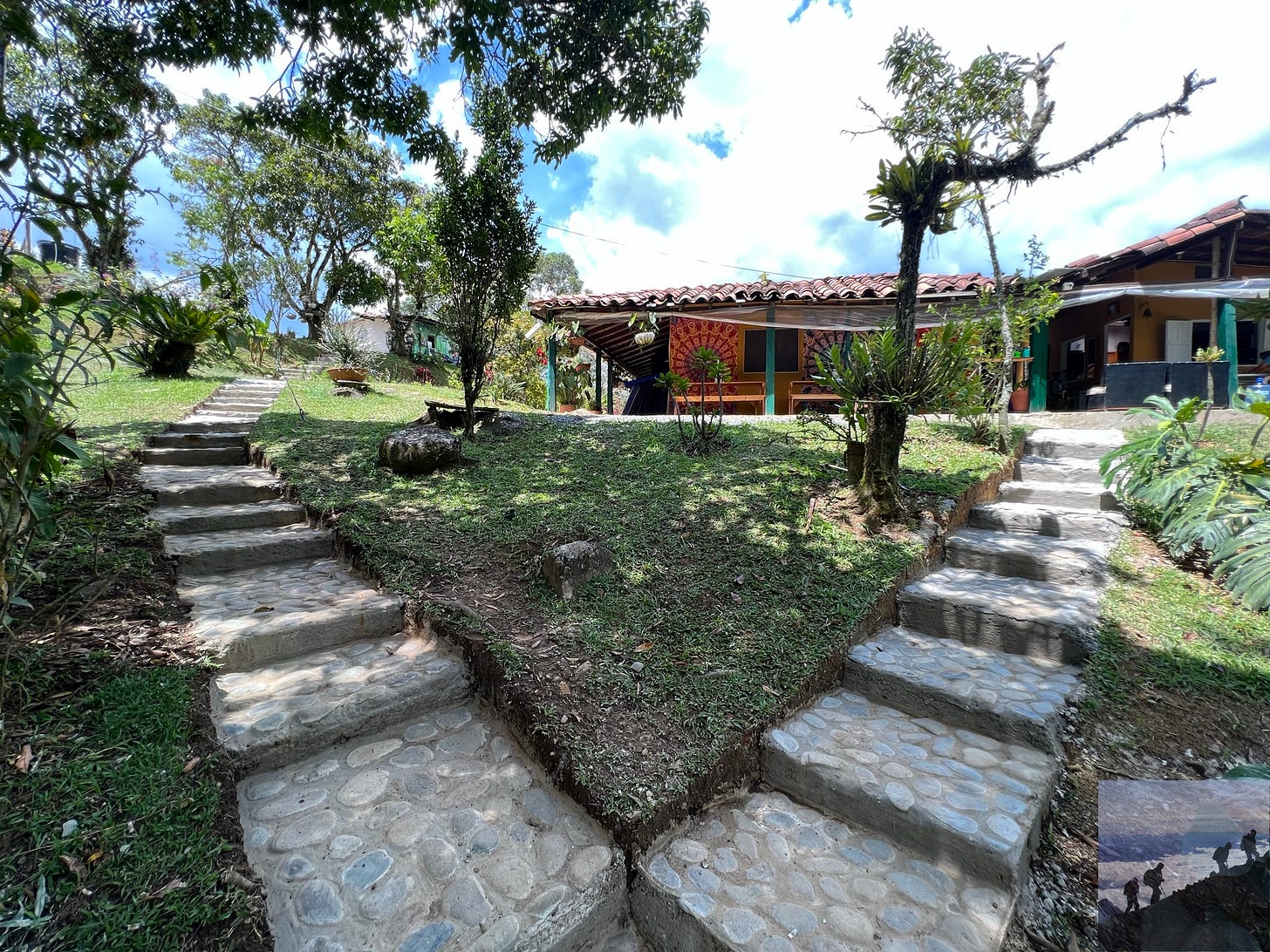INTEGRATING AYAHUASCA
The Challenges of Reentry into a Western Lifestyle after taking Indigenous Medicines
In the last couple of years, I had the privilege of experiencing Ayahuasca both in Peru at Los Cielos and Colombia at La Wayra under the care of competent Shamans. The experience has been difficult and positively life-changing at the same time, but the true challenge started when I returned to my own world.
Ayahuasca is a potent plant-based brew traditionally used by indigenous Amazonian cultures for spiritual and healing purposes. The Canadian physician Gabor Maté has popularized its use by writing and speaking extensively about its healing benefits, prompting more and more of us to seek healing, spiritual enlightenment, and personal growth through its use
The experiences with Ayahuasca can be profound and life-altering, yet for us from the global north, they tend to offer only fleeting relief. It feels like unlocking a door to one's inner world. It's a mind-bending experience, offering insights that make everything seem clear momentarily. It's akin to glimpsing a movie's preview—it's incredible but doesn't alter the ending of our movies unless we work at it. We from the overdeveloped world often dive into these ceremonies without fully grasping the rich cultural context behind Ayahuasca, missing the deep traditions and the profound ways it's intertwined in the lives of those who've used it for generations.
The problems start after the ceremonies end. Integrating the mind-altering experiences into everyday life becomes a daunting task. Returning to our familiar environments, they tend to slip away if we fail to apply the insights gained actively—much like having an epiphany, only to forget it a week later. Without ongoing self-work, changes, and the continuity of that elevated state, the ayahuasca encounter can feel like a temporary, albeit fascinating, escape. Yet, even with dedicated efforts for personal transformation, altering the surroundings that initially led us to seek change is nearly impossible.
Reflecting on a recent visit to New York City made this reality crystal clear to me. Ayahuasca had sensitized me not just to my inner world but also to my surroundings. Feeling compassion and connection with myself and others was powerful, yet it became challenging in a city where such sensitivity is not embraced. To protect my own mental sanity at the sight of so much senseless misery and distasteful luxury, I had to disconnect from not only the world around me but also myself. Witnessing the injustices of homelessness juxtaposed with materialistic affluence, the crimes against nature in environmentally unsustainable places like Times Square or the social fragmentation seen as anger or loneliness in people's eyes became too distressing. But in doing so, all my good work of integrating my Aya experiences with the world I have always lived in started to unravel.
Trying to retain the profound effects of an ayahuasca journey within the materialistic Western context presents significant hurdles. The clash between the spiritually enriched Aya experience and the Western world's material success and consumerist values is stark. The lessons and healing derived from ceremonies get diluted and contradicted by the prevailing societal ethos.
Finding the necessary support and resources for integrating the revelations gained through Ayahuasca into the Western lifestyle is still challenging. The fast-paced nature of Western life contradicts the deliberate and reflective approach required to absorb and apply the wisdom acquired, hindering efforts to sustain these changes.
A major challenge is the societal nonconformity one might experience as one starts questioning values. Altered perspectives gained from Ayahuasca often conflict with conventional expectations and social norms of our world, leading to a sense of isolation or disconnection from the mainstream.
Preserving and integrating the healing benefits of Ayahuasca within a Western societal framework, with its values often conflicting with the insights gained during ceremonies, poses a significant struggle. The discrepancy between those values and the profundity of the Aya experience makes any progress challenging to sustain and embody the transformation over time.
This struggle is primarily due to the lack of means for holistic integration, cultural understanding, and ongoing support. For indigenous individuals, Ayahuasca is deeply entrenched in their cultural heritage, used within traditional ceremonies guided by experienced shamans. The experience is woven into their spiritual beliefs, community practices, and collective understanding, seen as a tool for healing, connecting with ancestors, and gaining insights. Indigenous perspectives emphasize unity with nature, ancestors, their community, and the cosmos.
In contrast, we approach Ayahuasca from an individualistic, therapeutic perspective, seeking personal healing, self-discovery, psychological insights, or, worse of all, the thrill of drug-induced hallucinations. The benefits we gain do not hold up once we are resubmerged into our fast-paced, selfish lifestyles, even if we work diligently at integration.
Until the West finds a new paradigm that makes people's emotional well-being a higher social priority in a system geared towards generating material profits, the integration of insights gained from Ayahuasca and the active dedication to personal growth beyond the confines of the ceremonial space will remain an uphill battle. For now, it is up to the individuals to protect as much of their Aya healing from a system that is geared towards generating billions of dollars in profits at the expense of the general well-being and the mental health of millions.








